11+ Health Care Proposal
-
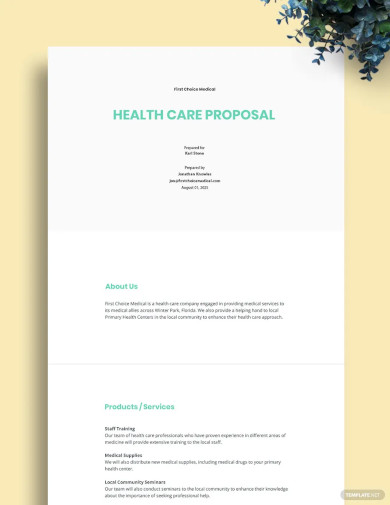
Health Care Proposal Template
download now -
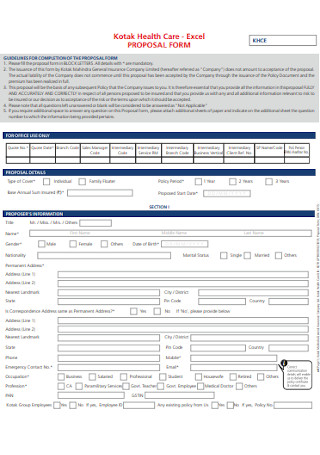
Health Care Proposal Form
download now -
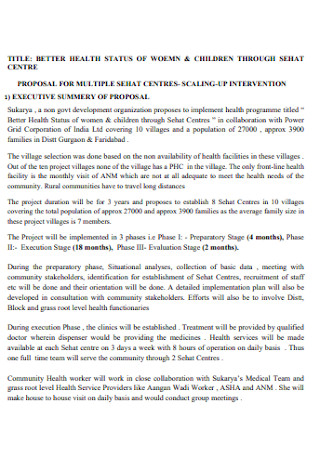
Children Health Care Proposal
download now -
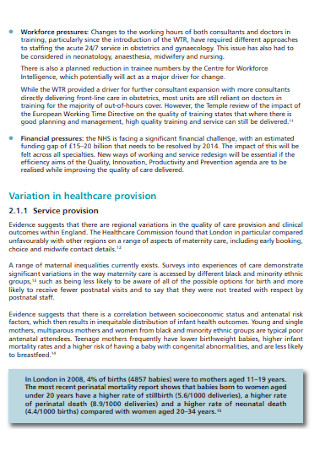
Women Health Care Proposal
download now -
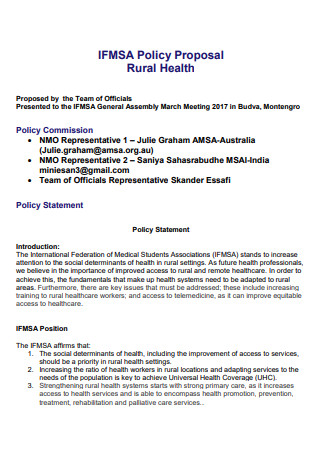
Health Care Policy Proposal
download now -
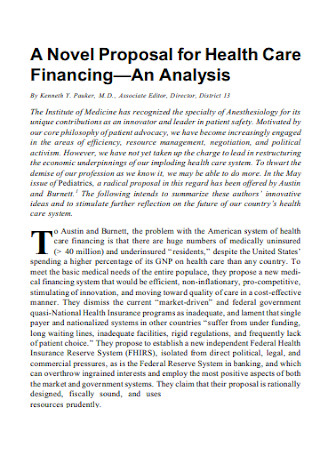
Novel Proposal for Health Care
download now -
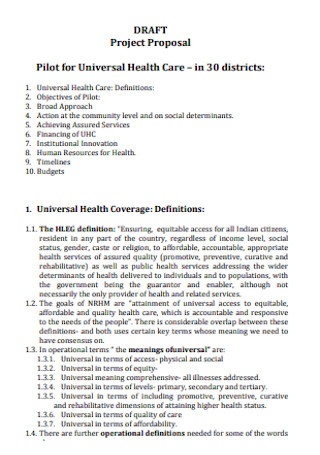
Pilot for Health Care Proposal
download now -
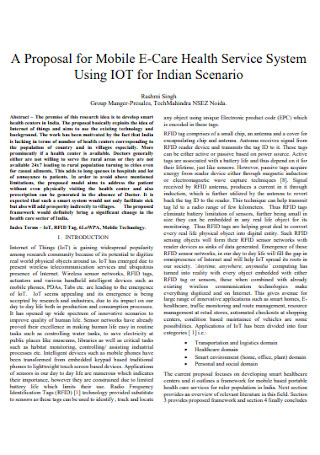
Proposal for Mobile E-Care Health
download now -
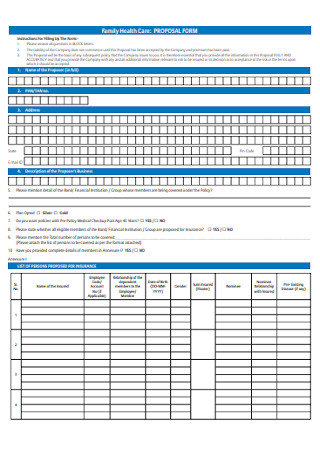
Family Health Care Proposal Form
download now -
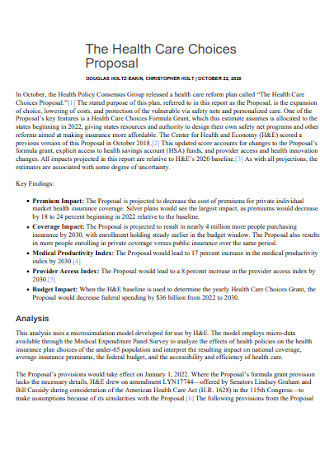
Health Care Choices Proposal
download now -
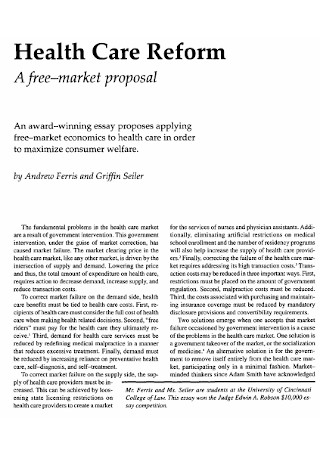
Health Care Market Proposal
download now -
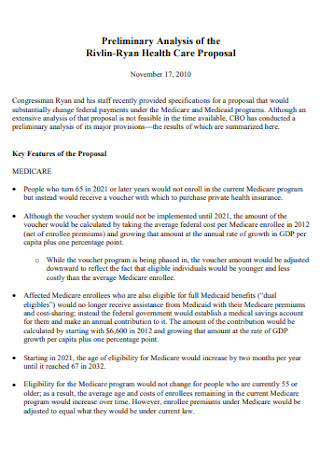
Simple Health Care Proposal
download now
FREE Health Care Proposal s to Download
11+ Health Care Proposal
What Is a Health Care Proposal?
Key Components Of a Proposal Document
Different Types of Health Care Facilities
Personal Skills That Health Care Workers Need to Have
How To Write a Health Care Proposal
FAQs
Is a Health Care proposal a legal document?
What are Health Services?
What does a health professional do?
What Is a Health Care Proposal?
By definition, a health care proposal is a proposal document created by a government or non-government agency that aims to provide good, easy, and affordable health care solutions to the greatest number of people from all walks of life. Some health-care proposals are aimed at the entire population, while others may target specific groups such as the employed, the young, or the elderly. A health care proposal is created to meet the needs of those seeking insurance coverage based on their requirements.
Key Components Of a Proposal Document
Here are some of the common or key components that should be in a proposal document; keep in mind that there are some elements that are unique to each type of proposal being written.
Different Types of Health Care Facilities
The health care infrastructure can consist of a complex system of facilities, professionals, insurance plans, and more. Professionals that work in the health care industry look after these types of health care facilities:
- Hospitals – Hospitals primarily provide diagnostic and treatment services to patients in need of immediate or intensive care. Most hospitals are in-patient facilities, which means that patients must remain under the supervision of specialized health care professionals until they are discharged. Hospitals are generally classified based on their ownership, treatment, facility size, and length of stay for patients. The vast majority of them are non-profit organizations that are typically overseen by a regional health authority. A common example of a hospital is a general hospital, which admits patients with a wide range of medical conditions. A general hospital may refer a patient to an acute care hospital, such as a cancer treatment, children’s, or maternity hospital, or a member of the hospital’s outpatient facility network, depending on the patient’s diagnosis.
- Hospice – Another type of health care facility is hospice. A hospice facility provides care for the terminally ill or those nearing the end of their lives. Hospice care is typically reserved for patients who have less than six months to live. During the transition, a team of professionals, including physicians, nurses, spiritual advisors, and counselors, supports both the patient and the patient’s family. Hospice services can be obtained in a hospice facility, at the patient’s home, in long-term care facilities, or the hospital, depending on the level of care required and the cost.
- Long-Term Care Facility – Long-term care facilities, also known as nursing homes, provide care to people who are recovering from an illness, have a chronic condition, or are disabled. They are intended to assist patients in carrying out daily activities as safely and independently as possible
- Outpatient Clinics – Outpatient clinics or facilities are frequently used for patients who require only short-term care and can recover at home. Discharged patients are referred to a network of outpatient clinics that specialize in services for chronic conditions such as weight loss, drug or alcohol rehabilitation, and physical therapy. Outpatient clinics are typically more convenient and cost-effective for patients. Day surgery centers, urgent care clinics, and specialty clinics are frequently located near a patient’s home, making it easier to access high-quality, non-emergency care.
- Clinical Labs – A clinical laboratory, also known as a lab, is responsible for completing diagnostic tests ordered by physicians and primary care providers. Medical technicians perform tests on biological specimens such as blood, urine, or saliva to help diagnose, treat, and monitor a patient’s health. Clinical lab facilities can be classified according to their function or test specialization. General clinical labs perform routine tests, whereas disease-specific labs, such as cancer clinics, perform tests. Diagnostic tests for a specific field, such as public health or hematology, are performed at test specialization facilities.
Personal Skills That Health Care Workers Need to Have
These are some of the personal skills that health care workers need so that they can enhance the way they communicate to their patients, colleagues, and peers:
How To Write a Health Care Proposal
As the health care business expands exponentially, you’re always going to look out for ways to make your health care business plan stand out from the rest. An effective health care proposal gives you more chances of securing better clients or getting funds. Here’s how to write one:
-
1. Write the Introductory Part
A Cover Letter and a Title Page are typically included in the introduction section of a proposal. Keep your Cover Letter brief and on company letterhead; simply explain who you are and provide your contact information. A Title Page is exactly what it sounds like: a page that introduces your proposal and names the specific project you’re talking about. Titles for a Health Care Proposal could include “Proposal to Manufacture Protective Face Wear” or “Proposal to Establish Medical Clinics in Rural Areas.”
-
2. Understand the Health Care Client’s Needs
Begin the rest of the proposal with a detailed summary (also known as an Executive Summary or a Client Summary), which is essentially a list of your most important points. Following that, you’ll write a section about the client. You will demonstrate your understanding of your client’s needs and concerns here. The goal of this section is to describe your prospective client’s requirements, needs, and concerns. You will include pages that discuss topics relevant to that Specific Client, such as privacy, insurance, cost management, protocols, conditions, special needs, and so on. This section is entirely dedicated to your client.
-
3. Describe What You Can Do For the Client
In this step, you will have to describe to the client that you have solutions to the needs described in the previous section. You’ll include pages with titles like diagnosis, treatment, therapies, screening, intervention, products, services provided, safety plan, and so on – include all the topics you’ll need to describe exactly what you plan to provide and how much it will cost. Specialized topics that address your employees’ education or experience in specific medical conditions or practices may be required. Add pages with information that the client will find useful, such as descriptions of your personnel, your training plan, certifications, insurance, facilities, and safety plan, and so on. Keep in mind that the proposal pages that you write will vary according to the health care business that you have.
-
4. Conclude the Proposal
This is where you provide information about your company and your experience. Your goal is to conclude your proposal by convincing the readers that you are credible and will deliver the goods and services that you have promised. Here, you’ll include pages like Benefits, Testimonials, Awards, Company History, References, Qualifications, Case Studies, and so on – everything you need to persuade potential clients that you’re worthy of their trust and business.
FAQs
Is a Health Care proposal a legal document?
While it’s easy to mistake a proposal for nothing more than a quote or an estimate, many formal proposals (such as a Health Care proposal) include all of the contract-required elements. This includes items such as the contract’s legal terms and conditions, as well as a list of products and services that may be exchanged for monetary value. If the proposal you send or receive contains any of these elements, it is likely to meet the legal definition of a contract. If you sign this document or give any indication that you accept the proposal’s terms and conditions, you may be held liable for that indication of consent.
What are Health Services?
Medical professionals, organizations, and ancillary health care workers provide medical care to those in need through health services. Patients, families, communities, and populations are all served by health services. They provide emergency, preventive, rehabilitative, long-term, hospital, diagnostic, primary, palliative, and home care services. These services are focused on making health care more accessible, high-quality, and patient-centered. To provide successful health services, many different types of care and providers are required.
What does a health professional do?
Human health is maintained by health professionals who apply the principles and procedures of evidence-based medicine and caring. Human illness, injury, and other physical and mental impairments are studied, diagnosed, treated, and prevented by health professionals in accordance with the needs of the populations they serve. They provide advice on and implement preventive and curative measures, as well as promote health, with the ultimate goal of meeting the health needs and expectations of individuals and populations, as well as improving population health outcomes.
Health is wealth. This is probably one of the common sayings that we hear when we talk about the importance of health. It might even be the first answer that we give whenever we are asked to define the word. In our society, and especially in today’s climate, the topic of effective health care becomes increasingly important. This is why a business plan such as a health care proposal is needed in order to effectively implement health care solutions and cater to the needs of the people. In this article, samples of an effective health care proposal are readily available for you to acquire so that you can use it as a reference whenever you need to make one.
